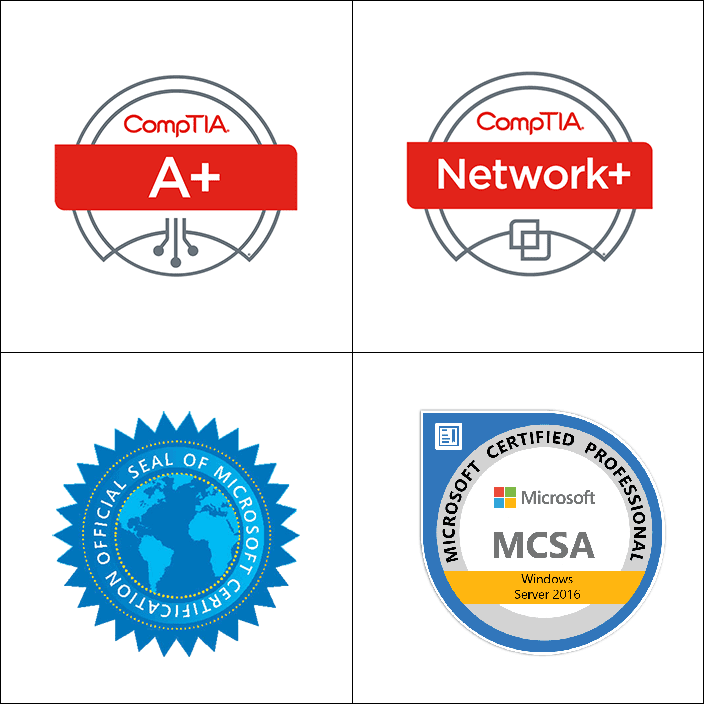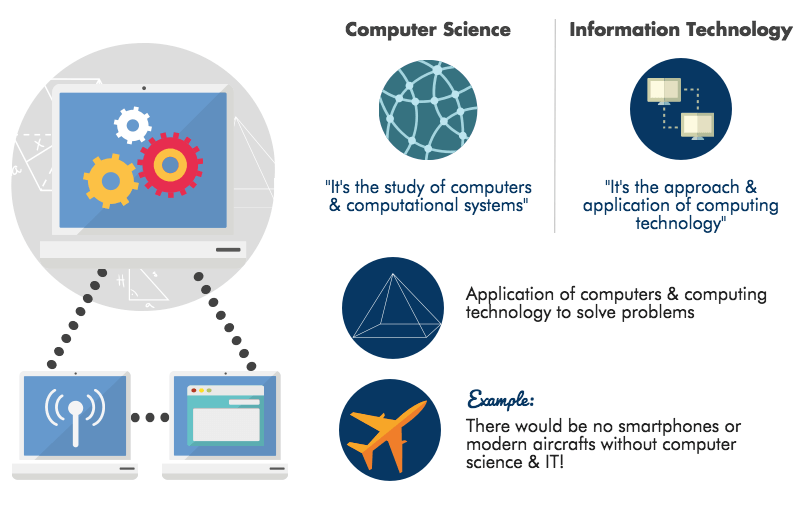We can quickly access all of the information we need with the aid of the Internet, thanks to IT. Aside from that, IT has altered educational institutions.
The use of computers for record-keeping and tracking is rapid and easy. The demand for IT experts has expanded as computer technology has become more widely adopted.
Many people want to study IT but wonder, “is IT hard?”
No, IT is not hard, and everything hinges on your willingness to study new things and develop abilities. We will now go over this further via the post.
Information Technology Is Not That Hard
Some of the fundamental applications are not difficult when it comes to IT. You will learn about computer programming, databases, spreadsheets, and other types of software.
However, if you want to master advanced IT skills such as AI, Machine Learning, and other advanced abilities, it will be a little more challenging to learn, but if you put in the time, you will be able to do so effortlessly.

Even the most talented IT specialists will hit a hard patch at some point since IT is such a large area. If you start with past knowledge and specialize in your best subject, you will find IT to be simple.
You can specialize in web development, for example, if you have a strong grasp of programming. Then you’ll need to brush up on your HTML and JavaScript skills. It will make it a lot more enjoyable and straightforward.
Why is IT maybe hard to learn?
When you look at the history of IT, you’ll see that jobs first focused on either hardware or software. One program ran at a time on computers.
Since then, operating systems, telecommunications, database management, and security have all developed. While someone may specialize in one topic, they must also know all others.
Because technology advances quickly, remaining current is a daily challenge. When you believe you’ve mastered something, the goals will change. That reality forces you to read, study, and catch up.
How Long Does It Take To Learn Information Technology?
There is no one IT certification that a person may obtain to become qualified in all aspects of IT. As a result, the answer to this question will vary depending on whatever certificate you choose to pursue.

CompTIA A+, CompTIA Network+, CompTIA Security+, Cisco CCENT, and Cisco CCNA are five popular and coveted entry-level certifications. There are online programs for most of these credentials that you may pay for to become certified.
The length of each course will vary based on how the organization structures it. It is also possible to obtain numerous certificates simultaneously through some firms, which might speed up the procedure.
However, most IT workers need a four-year bachelor’s degree in computer science, software engineering, or a similar discipline.
Which Is Easier IT or Computer Science?
Computer science and information technology courses are essentially identical in structure.

However, suppose you want to know which one is tougher. In that case, we’d say IT is somewhat more complicated than computer science since IT includes a tiny amount of hardware that isn’t present in computer science.
If you genuinely want to make a profession out of computer programming or coding, computer science is the way to go. Furthermore, computer science students receive a slightly better package than IT students.
However, the terms “easy” and “tough” are subjective. You’ll believe something is challenging if you can’t understand it.
Your area of interest and level of involvement are the factors to consider. If you are uninterested in learning a specific subject, you may find yourself skipping courses or even dozing off during lectures.
What Is The Purpose of Information Technology?
In many areas of our society, we can see the uses of IT and what function it plays:
- Business: Information Technology is critical for efficiently running the many sections of a corporation, and it is achievable with computers and software.
- Healthcare: Sending and receiving information, checking patients, and consulting with other specialists have become more convenient for doctors. It also cuts down on the amount of time spent on paperwork.
- Education: Technology allows instructors to keep up with new approaches and assist their pupils in keeping up with the latest technology in education. IT helps students learn new skills, but it also assists students who have dropped out of college.
- Security: Online transactions and preserving records of all online transactions are now safer than previously.
- Finance: Banks use computers to maintain track of all trades and accounts. Transactions and other dealings have gotten faster and easier than once.
- Employment: IT workers now have access to many new sectors and hundreds of new career opportunities.
- Communication: Information can swiftly and readily spread throughout the planet, and you may break down linguistic and geographic barriers as individuals share ideas and information.
Tips To Learn Information Technology
1. Don’t be apprehensive of specializing
Specializations don’t have to come from an academic degree, so don’t be afraid to experiment with new ideas, skills, and expertise on your own.
2. Social Skills Are Important
Almost all IT occupations demand some level of social and communication skills, even if you spend most of your day in front of a computer.
Non-technical abilities that IT specialists should include critical thinking and operating as part of a team.
3. Obtain Practical Work Experience
Interning while still in school allows students to get valuable experience and determine their professional path.
These experiences may also be excellent ways to meet potential employers and start networking with individuals in your chosen field.
4. Take your studies seriously
Even if you do everything you can to achieve a good mark and please your teachers, you should always strive to improve.
Always get the most out of every project and keep the high-quality ones since you might be able to utilize them again later.
5. Keep up with the latest industry news
Both students and professionals should stay up to date on the newest advancements in their fields.
It’s also crucial to be aware of industry trends, such as the current surge of mobile applications, so that you can add valuable talents to your arsenal.
Is It Hard To Get A Job With Information Technology?
IT is now the most diverse sector, and if you want to pursue a career in this industry, you will find several employment choices open to you.
Web apps, Android applications, System analysts, Artificial Intelligence, Machine Learning, and other technologies are examples.

Here are five pointers on how to find a career in IT.
6. Know What Kinds of Jobs Are Available
The field of IT is vast. Because employment requirements vary considerably, determining where and how you want to work is critical to planning your career and landing a job interview.
7. Make that you’ve received the appropriate training
You can attend online or campus-based classes while working if you’re looking for a career. Attend some meetings of IT organizations to understand how corporate systems are set up and network with individuals already working in the industry.
8. Acquire Experience
Internships or summer work placements are ideal for current students. If you are eligible for a work-study program, you may apply to work in the school office or in another job that will allow you to polish your talents.
9. Make yourself a “Techie”
Learn how to use HTML. This foundation builds all IT development. Learn Javascript as well, as it is one of the Internet’s primary languages.
You might want to install Linux on your computer to familiarize yourself with a different operating system than Windows. Read literature on computers and immerse yourself in the language and the Internet’s universe.
10. Be willing to start from the bottom
That entry-level job will allow you to get experience while studying or pursuing your degree.
Make it clear to potential employers that you want to learn more and improve your computer abilities. They may even be ready to assist you financially or give you more flexibility in your work schedule.
FAQs
Is information technology a stressful job?
Becoming a computer programmer is a challenging career since you must oversee all of the work on the server end (back end) and the front end. You must complete all tasks connected to your abilities and your ability to think critically.
Is there a lot of math in IT?
You’ll master discrete math, differential equations, calculus, and linear algebra as part of any computer science degree program. You can discover online courses for each of these areas if you’re learning on your own.
What is the most paid IT job?
- DevOps engineer: $137,400.
- Information security engineer: $131,300.
- Technical program manager: $145,000.
- Enterprise architect: $144,400.
- Applications architect: $149,000.
- Software architect: $145,400.
- Software development manager: $153,300.
- Infrastructure architect: $153,000.
Final Thoughts
What do you think? Is information technology easy or hard?
It is not simple to master IT skills. But you can do it if you are dedicated to your studies and have a passion for IT.
To succeed in this field, you need to have a degree of enthusiasm and discipline. IT offers various options, from certificates to Ph.D. degrees.
We hope you found this helpful article. Thanks for reading, and good luck with your chosen career!
